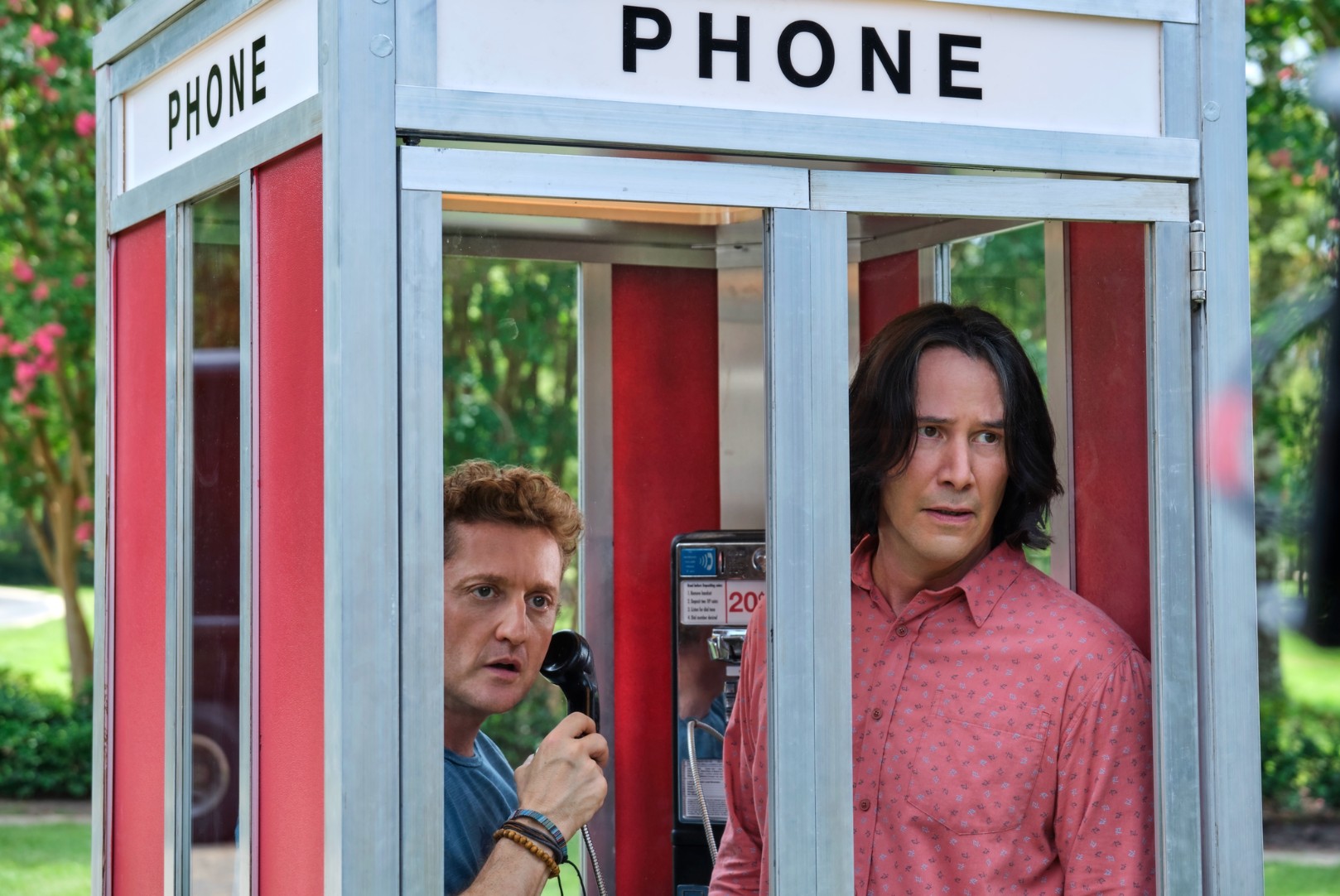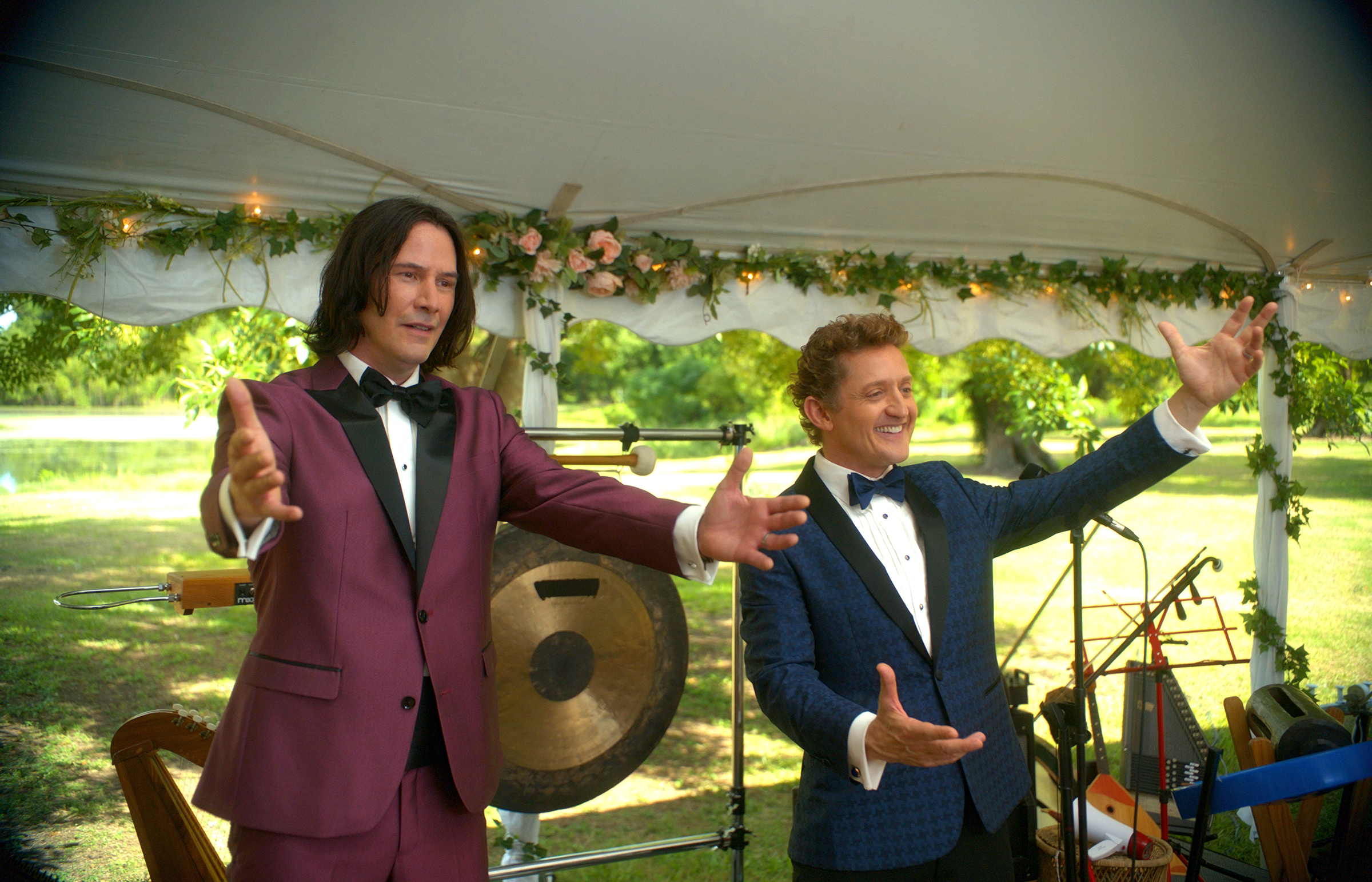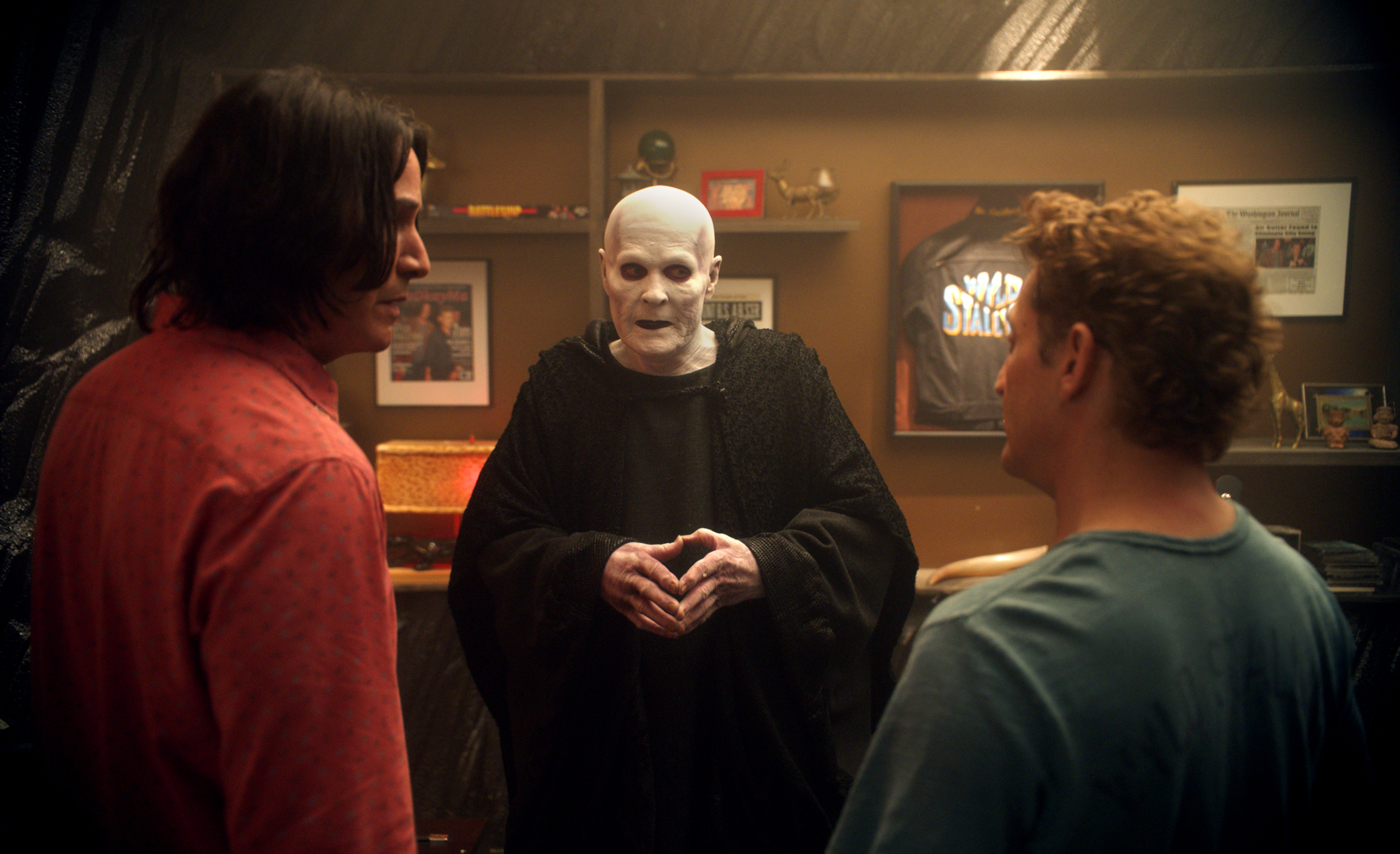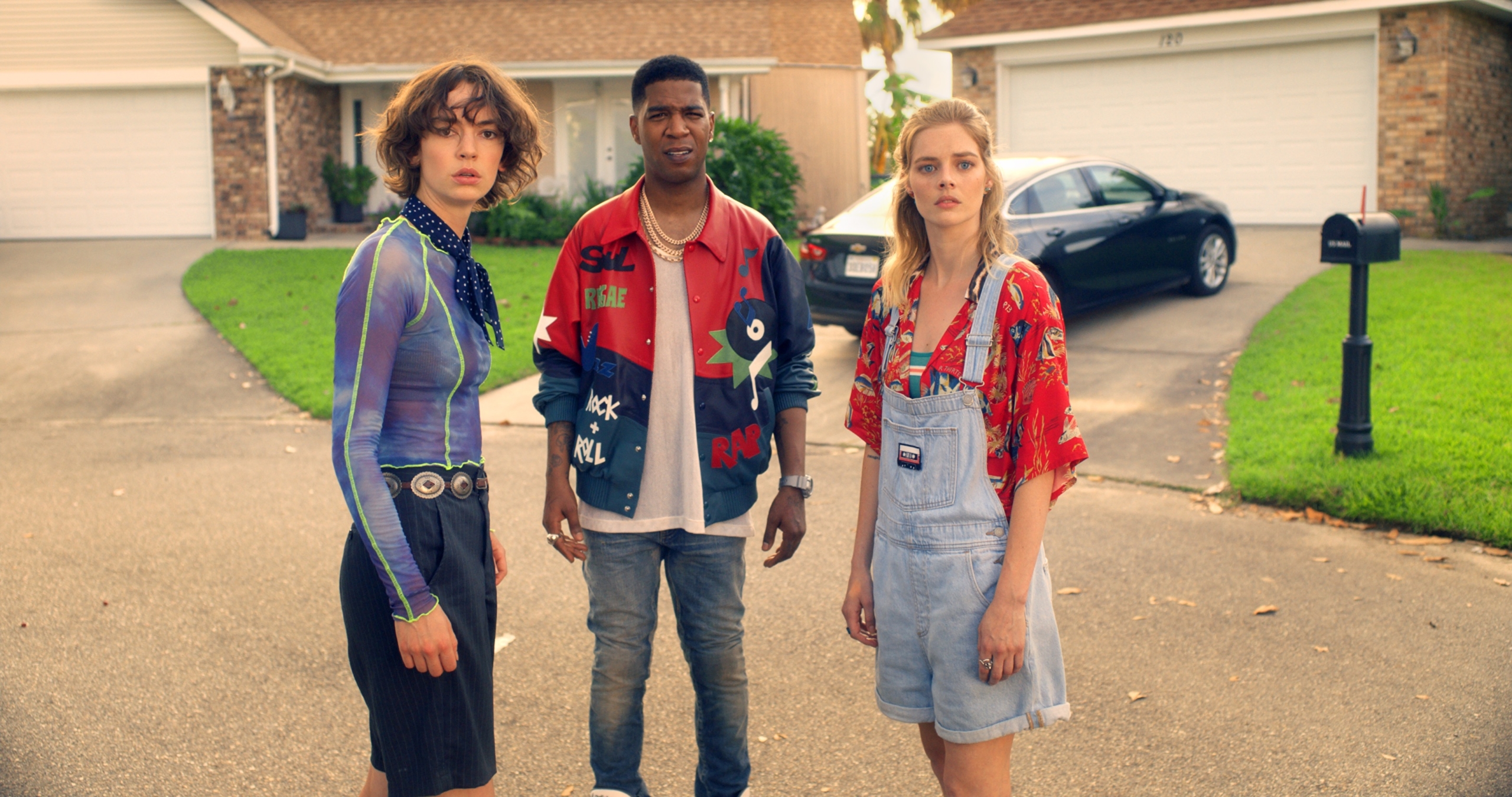The 10-year journey to the screen for Bill & Ted Face the Music has been filled with moments both excellent and bogus, and — with the exception of franchise stars Keanu Reeves and Alex Winter — no one has spent more time immersed in that saga than screenwriters Chris Matheson and Ed Solomon.
The writers on all three films in the franchise, Matheson and Solomon have carried the torch for slacker heroes William “Bill” S. Preston (Winter) and Ted “Theodore” Logan (Reeves) since 1989’s Bill & Ted’s Excellent Adventure became one of that year’s surprise hits. The third installment of the series, Bill & Ted Face the Music, arrives in theaters (and via on-demand video) August 28, and finds the titular Bill and Ted stuck in the doldrums of middle age, frustrated by their inability to live up to their musical destiny.
Digital Trends spoke to Matheson and Solomon about the long, rocky road to the screen for Bill & Ted Face the Music, and how the film’s story changed and evolved over the last decade.

Digital Trends: I feel like I’ve been writing about this film for such a long time now, but you’ve been involved with so much longer. How does it feel for the film to finally be released soon?
Ed Solomon: “Well, today’s the first day that I’ve personally spoken to people who have seen it. There’s a sense of relief there, because I never thought this would even really happen. Just the fact that it’s there and it’s finished means there’s no more work we can do on it. So now it’s time for that strange moment of transition where it’s no longer your movie. It’s everyone else’s movie. And there’s nothing you can do about that. It’s out in the world, and it is what it is. And people will make of it what they’re going to make of it.”
You’ve been working on the script for this for so long, and a lot can change over time. What are some of the big ways the script for this film evolved over the last 10 years?
Chris Matheson: “The core ideas stuck pretty early. We knew they were going to travel into the future and try to steal the song from themselves, and in doing so, interact with a bunch of versions of themselves. And that was going to go badly. Those things have been stuck for a long time. But I would say that the daughters’ journey came later, among other things, and how they interacted with Death, too.
Early on, there was a version of the story with an extended sequence that took place in medieval England. There was a primary villain — which was another difference in that early story — and the villain had taken their wives and kids. So they were back in medieval England trying to think their way out of trouble, and they end up using a bunch of skills they didn’t realize they’d learned over the years, like stilt-walking and log-rolling and shooting a crossbow. It was a wild, wild scene, and was pretty funny — but it didn’t fit. It would also be a tremendously expensive sequence to film.”

Watching the film was a great reminder of just how unique the original film was — from its pace and tone to the characters’ dialogue. How did you get back into the unique headspace for these characters while writing it?
Matheson: “In 2008, Alex and Keanu first expressed an openness to making this film. They were interested in the core idea of how destiny just hasn’t worked out for Bill and Ted. So we had to figure out a plot and eventually came up with them trying to travel forward and steal a song from themselves.
But then in 2010, Ed and I finally had to sit down and write. I remember that day well. We were like, ‘We haven’t written these guys [or] done this voice in two decades. How is this going to go? Are we still going to be able to do Bill and Ted?’ But it really was like riding a bike. We started writing and started talking like Bill and Ted, and one of the very first things we wrote was the wedding scene — the toast they make in that early scene. We thought it was ridiculous, because some of the things they’re saying don’t make any sense, but it made us feel like, ‘OK, cool. We can still write these guys.'”
Solomon: “We didn’t watch the movies to prepare for it. We just dove in and did it by feel. And I remember us saying to each other, ‘This feels right. This feels like where they’d be now.’ We didn’t really talk about it. We didn’t talk about details or characteristics. We just jumped in.”

The film has Bill and Ted desperately trying to save the universe with a song that will unite everyone. How did you approach the task of figuring out what form that song would take in the film?
Solomon: “Yeah, we knew from the beginning that saying you’ve got to write a song that’s going to unite the world is a task that no musician want, and no screenwriter should set themselves up for. And you would think, as long as we’ve been doing this, we wouldn’t throw ourselves into that unbelievably deep trap. But we did.
But the way we got around it was to make it so it’s not the quality of the song itself that matters. It’s less about the song and more about how it’s played, because…”
Let’s stop there, because we don’t want to spoil anything. I’m sure there are some scenes you’re really excited about for one reason or another, so without spoiling anything, is there a particular scene you’re really excited for Bill & Ted fans to see?
Matheson: “There are moments late in the movie when you get a feeling of the depth of their emotions pertaining to their wives and their children that I find very interesting and moving. I’m really glad we went for them. They were not the obvious things to go for, because it’s just not really common. I love characters like [Will Ferrell’s] Ricky-Bobby and Ron Burgundy because they’re brilliant, but those characters don’t grow up. They don’t have deep feelings. They’re hilarious, but we were trying to have Bill and Ted experience genuine, deep emotions. Whether we achieved that, I don’t know. But I’m proud that we went for it.”

Solomon: “In the first movie, Ted deals with the torment of his childhood by being ebullient and sort of bouncing through life. But in his 50s, those demons have taken deeper roots in his emotional life. I love seeing that play itself out as Face the Music moves forward. I love that when Ted sees future Ted, they don’t get along very well — but the two Bills get along great. There’s that difference between Bill and Ted, and that was really fun to me. It was fun for us to write that, and I think it was fun for Keanu and Alex to explore that dynamic. I’m hoping that Bill and Ted fans will find that amusing, too.”
It feels strange to look beyond Bill & Ted Face the Music at this point, but is there the possibility of more stories with them? Have you talked about it at all?
Matheson: “It’s funny, because my strong sense is, ‘No, we’re done. Three is good. There’s a beginning, middle, and end.’ But actually, while Ed and I have been doing interviews, we’ve been talking about it, and keep thinking, ‘Well, what about if…’
There is the idea of revisiting these guys in 20 years, when they’re old men — really old. That’s weird and potentially really interesting. That’s a long ways off, but I think it would be really strange, creatively. I know I’ve never seen anything like it. What the comedy of it would be, and what the story is, I don’t have a clue. But it’s weird and it’s interesting. Other than that, it’s Billie and Thea. If we can get their stories to move forward, that’s great.”

Directed by Dean Parisot and written by Chris Matheson and Ed Solomon, Bill & Ted Face The Music will be available in theaters and via on-demand video August 28. And remember: Be excellent to each other.



